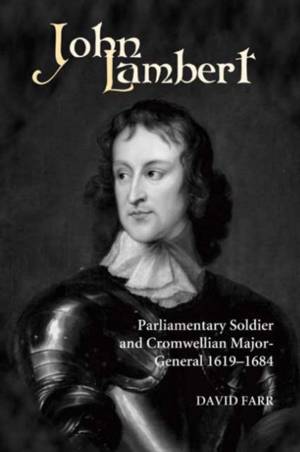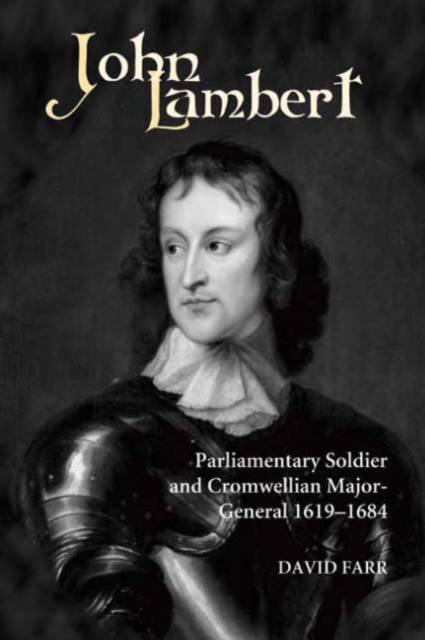
Bedankt voor het vertrouwen het afgelopen jaar! Om jou te bedanken bieden we GRATIS verzending (in België) aan op alles gedurende de hele maand januari.
- Afhalen na 1 uur in een winkel met voorraad
- In januari gratis thuislevering in België
- Ruim aanbod met 7 miljoen producten
Bedankt voor het vertrouwen het afgelopen jaar! Om jou te bedanken bieden we GRATIS verzending (in België) aan op alles gedurende de hele maand januari.
- Afhalen na 1 uur in een winkel met voorraad
- In januari gratis thuislevering in België
- Ruim aanbod met 7 miljoen producten
Zoeken
John Lambert, Parliamentary Soldier and Cromwellian Major-General, 1619-1684
David Farr
Hardcover | Engels
€ 177,45
+ 354 punten
Omschrijving
John Lambert's life and career have long deserved this revealing study. The man who made Cromwell Lord Protector in 1653 also stopped him becoming king in 1657; and Lambert was the originator of the Instrument of Government, on which Cromwell's Protectorate was based. Committed to his deeply held, radical beliefs, Lambert first rose to prominence as a dashing cavalry commander in the civil wars of 1642 - 51, and he was a prominent upholder of the power of the New Model Army, particularly in his creation of the Major Generals, who ruled England in 1655. Lambert's refusal to countenance Cromwell as king saw his temporary fall from power, but he emerged after the Protector's death as a possible successor. His radical ideas seemed to threaten even 'his own side', and led to his imprisonment in the Tower in 1660, but he escaped and staged a last desperate republican stand against the return of Charles II. Although Lambert was subsequently convicted of treason, Charles did not have him executed - sure recognition that his character, private actions and beliefs were those of a man who was much more than a military revolutionary. DAVID FARR is head of history at Norwich School.
Specificaties
Betrokkenen
- Auteur(s):
- Uitgeverij:
Inhoud
- Aantal bladzijden:
- 278
- Taal:
- Engels
Eigenschappen
- Productcode (EAN):
- 9781843830047
- Verschijningsdatum:
- 31/08/2003
- Uitvoering:
- Hardcover
- Formaat:
- Genaaid
- Afmetingen:
- 157 mm x 245 mm
- Gewicht:
- 644 g

Alleen bij Standaard Boekhandel
+ 354 punten op je klantenkaart van Standaard Boekhandel
Beoordelingen
We publiceren alleen reviews die voldoen aan de voorwaarden voor reviews. Bekijk onze voorwaarden voor reviews.









